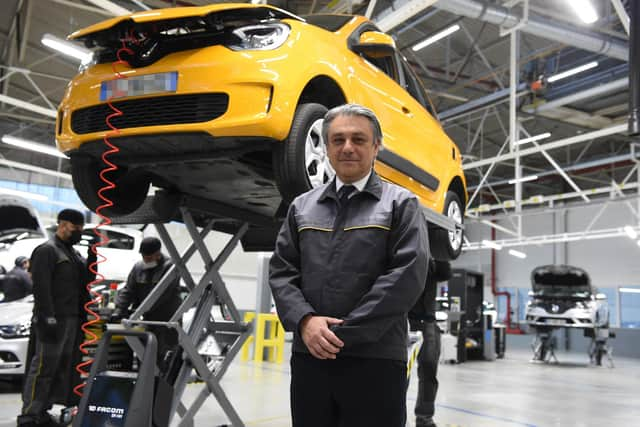Circular economy: Scotland should be inspired by Netherlands' plan for an economy that needs virtually no new materials – Dr Richard Dixon
Last week I wrote about the need to move away from incineration of waste towards a more circular economy, where material resources, like steel, glass and cardboard, are used and reused as much as possible.
A new report from Friends of the Earth Scotland brings alive the progress with examples from around the world.
Advertisement
Hide AdAdvertisement
Hide AdAt the top level, the Netherlands has set a target to reduce the use of primary raw materials by half by 2030 and to have an economy that needs virtually no new materials by 2050.
Amsterdam has set in motion a whole programme of initiatives which include growing much more food in the city itself, more being sourced from the wider region and a transition from majority meat-based consumption to majority plant-based consumption in this decade.
There are also policies to extend the life of existing buildings, promote greater use of timber instead of steel and concrete in building projects, and to include the city’s inhabitants more meaningfully in the decisions that affect them.
In France, it has been illegal since 2016 for supermarkets to dump unsold food, having instead to donate it to local charities. Last year it was revealed that Amazon in the UK was throwing out millions of unsold or returned items a year. New French legislation means that, from the start of this year, it has been illegal for retailers in France to dump unsold clothing, electronic goods and household appliances.


Renault’s Re-Factory repairs, repurposes and remanufactures cars and car parts to save resources and extend the life of vehicles.
In Japan, IT companies and other manufacturers are obliged to run disassembly plants where returned products are recycled and remanufactured. A similar initiative ensures rare chemicals are recovered for electric vehicle batteries.
Even on the basics of recycling, there is much to learn from strategies in Wales and Ireland to turn around our falling rates here.
Of course, there are some great examples here in Scotland. People often buy power tools they only use once or twice but the Edinburgh Tool Library helps people find what they need without having to own it.
Advertisement
Hide AdAdvertisement
Hide AdSustaining Dunbar runs the Zero Waste Dunbar project, including a kind of giant second-hand shop with an amazing range of items. The Edinburgh Remakery repairs and refurbishes IT equipment and furniture, and offers workshops to help people repair everything from computers to sideboards.
Not mentioned in the report but also great are the Bike Stations in Edinburgh and Perth and Bike for Good in Glasgow, which refurbish donated bicycles and bike parts and sell them to the public.
There are great examples around the world and in Scotland of what a future circular economy could look like, but they are mostly only examples. We need to see repair and refurbishment outfits in every town and we need to set ourselves tough targets to reduce our current shockingly wasteful use of resources.
Fortunately a consultation on a Scottish Circular Economy Bill is about to start. Let’s make sure it learns from the best in the world.
Dr Richard Dixon is an environmental campaigner and consultant
Comments
Want to join the conversation? Please or to comment on this article.
